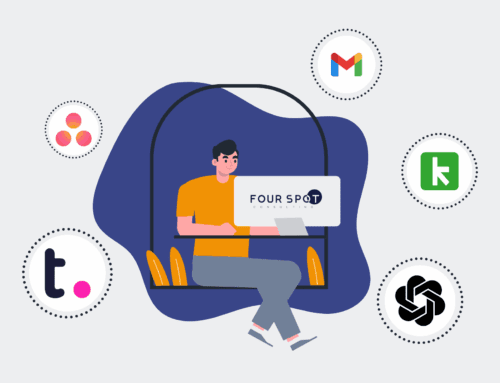Beyond Keywords: Semantic Search in AI Resume Parsing Explained
In the relentless pursuit of top talent, many organizations still find themselves caught in the cumbersome web of traditional resume screening. Relying on simple keyword matches often leads to a deluge of irrelevant applications, while truly qualified candidates are overlooked because their experience isn’t articulated with the exact phrases a system expects. This manual slog, or equally flawed automated filtering, wastes precious time for HR and recruiting teams, impacting everything from time-to-hire to the quality of new hires. At 4Spot Consulting, we understand that efficiency in talent acquisition is not just about speed, but about precision. This is where semantic search, powered by advanced AI, steps in to revolutionize how we understand and parse resumes.
The Limitations of Traditional Keyword Matching
For years, resume parsing predominantly operated on a simple premise: keyword matching. If a job description asked for “project management” experience, the system would look for those exact words, or perhaps a predefined list of synonyms like “PM” or “project lead.” While seemingly straightforward, this approach is fundamentally flawed. Human language is nuanced, and a candidate’s rich experience might be described in various ways that traditional systems simply cannot comprehend. Someone who “orchestrated cross-functional initiatives” might be a stellar project manager, but a keyword-only parser would miss them. This leads to a narrow talent pool, bias towards specific terminologies, and a significant amount of manual review just to catch what the basic system missed. It’s a low-value activity for high-value employees, precisely the kind of bottleneck 4Spot Consulting specializes in eliminating.
Enter Semantic Search: Understanding Intent, Not Just Words
Semantic search represents a paradigm shift from merely identifying keywords to understanding the underlying meaning and context within a resume. Instead of looking for an exact phrase, AI-powered semantic search analyzes the entire document to grasp the candidate’s skills, roles, and accomplishments, even if they’re described using entirely different vocabulary. It leverages Natural Language Processing (NLP) and machine learning models to infer relationships between words and concepts. For instance, an AI-driven semantic parser can understand that “spearheaded an engineering task force” is semantically equivalent to “managed a team of software developers,” recognizing the core skill set and responsibility without needing an explicit keyword match. This enables a far more intelligent and human-like interpretation of candidate profiles, ensuring no qualified individual is overlooked due to linguistic variations.
The AI Engine Behind the Semantic Revolution
The magic of semantic search lies in sophisticated AI algorithms that are trained on vast datasets of language and professional contexts. These models learn to identify patterns, synonyms, and conceptual links, allowing them to build a rich understanding of what different phrases and sentences signify. When parsing a resume, the AI doesn’t just scan for terms; it builds a comprehensive profile based on the meaning of the content. This includes identifying transferable skills, understanding the seniority implied by certain job titles, and even discerning the impact of a candidate’s achievements. At 4Spot Consulting, we integrate these cutting-edge AI capabilities into our automation solutions, transforming raw data into actionable insights for our clients. By harnessing AI for smarter operations, we empower businesses to reduce manual burdens and make more informed decisions, precisely in areas like talent acquisition.
Benefits for Talent Acquisition and Business Leaders
Adopting semantic search in AI resume parsing delivers substantial benefits across the entire talent acquisition lifecycle:
-
Improved Candidate Matching: Recruiters can find candidates whose experience truly aligns with the role’s requirements, even if their resume doesn’t use the exact keywords. This leads to a higher quality of shortlist and better fit for the organizational culture.
-
Reduced Time-to-Hire: By quickly identifying the most relevant candidates, the manual screening process is significantly shortened. This means less time sifting through irrelevant applications and more time engaging with potential hires.
-
Enhanced Diversity and Inclusion: Semantic search helps overcome the inherent biases of keyword-driven systems, which might favor resumes written with specific jargon. It recognizes diverse backgrounds and non-traditional career paths, broadening the talent pool and fostering a more inclusive hiring process.
-
Operational Efficiency: For HR and recruitment teams, semantic parsing frees up countless hours previously spent on manual review. This allows high-value employees to focus on strategic activities like candidate engagement, interview design, and talent strategy, rather than repetitive data extraction. This directly aligns with 4Spot Consulting’s mission to help businesses save 25% of their day by automating low-value work.
Implementing Semantic Search in Your HR Tech Stack
Integrating semantic search capabilities doesn’t necessarily mean a complete overhaul of your existing HR tech stack. Modern AI parsing solutions are designed to be integrated seamlessly with popular Applicant Tracking Systems (ATS) and CRM platforms. For example, at 4Spot Consulting, we leverage powerful platforms like Make.com to connect disparate systems, automating the intake, parsing, and enrichment of resume data. Imagine resumes automatically being semantically parsed, key skills identified, and then synced directly into your Keap CRM or ATS, providing a holistic, intelligent view of each candidate. This eliminates human error, reduces operational costs, and increases scalability. We’ve seen firsthand the impact of this approach; for one HR tech client, we helped save over 150 hours per month by automating their resume intake and parsing process using Make.com and AI enrichment, then syncing to Keap CRM. This kind of strategic automation, guided by our OpsMap™ framework, ensures every solution is tied to tangible ROI.
The Future is Contextual
As the competitive landscape for talent continues to intensify, organizations that embrace contextual understanding over keyword literalism will gain a significant edge. Semantic search in AI resume parsing is not merely a technological advancement; it’s a strategic imperative for any business looking to attract, identify, and secure the best talent more efficiently and effectively. It moves us closer to a human-centric AI approach where technology augments human intelligence, reducing operational friction and allowing recruiters to focus on what they do best: building relationships and finding extraordinary people. 4Spot Consulting is at the forefront of helping businesses implement these intelligent automation solutions, ensuring you’re not just keeping pace, but leading the way in talent acquisition.
If you would like to read more, we recommend this article: The Future of Talent Acquisition: A Human-Centric AI Approach for Strategic Growth








